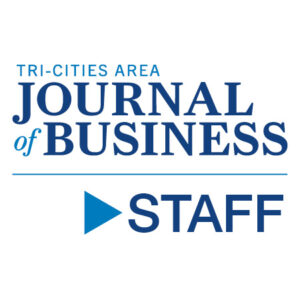
Home » Q&A with Michele Gerber, Ph.D.
Q&A with Michele Gerber, Ph.D.

February 16, 2021
President, Benton Franklin Recovery Coalition

Number of employees you oversee: 100+
Brief background of recovery coalition:
The coalition formed in June 2018, in response to the lack of detoxification services and inpatient treatment services for people suffering from Substance Use Disorder (addiction) in the Tri-City region. Our mission is to partner within Benton and Franklin counties to advocate for recovery and treatment opportunities; educate to destigmatize the disease of addiction and reduce barriers to recovery for people suffering from Substance Use Disorder, or SUD.
What is your role? How long have you been in it?
I am the president and founder of the coalition.
Why should the Tri-Cities care about a Recovery Center?
The many reasons the Tri-Cities should care about a Recovery Center encompassing detox and treatment include benefits to the community, as well as to addicted people and their families. A comprehensive Recovery Center will:
• Reduce crime and recidivism, thus lowering local law enforcement costs and burdens and increasing public safety and hygiene.
• Reduce repeat visits to hospital emergency departments by addicted persons in crisis.
• Assist physicians and other health care providers by providing a place where they can send patients who need SUD care that primary providers are not equipped to offer.
• Provide timely treatment to addicted persons who are in crisis or ready to begin recovery.
• Allow families of addicted people to participate in treatment programs, thus increasing success rates.
• Provide a key asset for employers in attracting high-quality workers to the Tri-City area.
• Provide substantial Return on Investment, or ROI, to employers currently sending employees and their family members to treatment centers throughout the U.S.
• Keep treatment dollars in the Tri-Cities (instead of being spent in Seattle, Spokane or other areas).
• Attract more and highly-qualified medical and mental health providers to our region.
• Raise the profile and pride of the Tri-Cities as a place of medical excellence in all fields.
• Provide a regional resource in Eastern Washington to meet these behavioral health needs: Secure withdrawal management areas (for people detained under “Ricky’s Law” or civil commitment); correctional diversion, to respond to SUD and mental health issues in constructive ways other than arrest; transitional housing for drug-affected and mentally ill persons who have been through treatment; hospital-grade care for chemically-using pregnant women; and utilization of peers as well as professional staff, and telehealth in additional to in-person care.
How can supporters help make it happen?
Contact elected official at all levels of government and convince them to support the project financially, based on the community benefits listed above. In addition, supporters can make a tax-free, financial donation at www.509recovery.org.
What is the biggest challenge facing families and friends of people in crisis today?
There is absolutely, flatly, no place locally to take people who are in crisis due to Substance Use Disorder. This situation is terrifying to families in crisis. An addiction crisis can be every bit as urgent as a heart attack.
What is one characteristic that you believe every leader should possess?
Be bold and unafraid. Don’t be afraid to fail.
If you had a magic wand, what would you change?
We would open the doors of a comprehensive Recovery Center today, accept all troubled persons on a 24/7/365 basis, assess what they need and begin providing services or sending them to whatever services are most appropriate.
What advice would you give someone going into a leadership position for the first time?
Take emotion out of your negotiations and decisions.
Who are your role models or mentors?
Personal, private people of steadfast character whom no one would recognize.
How do you keep your team motivated?
People need to be involved and have things to do. Divide up the tasks and delegate. Don’t fall into the trap of thinking you are best at everything.
What was your career at Hanford and how did you decide to pursue it?
I was called the site historian and conducted research into very old, hidden historical records in support of finding and characterizing wastes at the outset of the waste cleanup. Once waste information began being revealed, the information was shocking to many people, and so I conducted a great deal of public outreach and education about the facts, volumes and environmental pathways of the waste. I became involved because I am a professional historian who moved here and became curious about vastly conflicting news stories about Hanford’s waste.
How will you measure success once the recovery center is operational?
We will have to be financially stable and self-sustaining to stay open. However, beyond that baseline, I will measure success by the number of people who come in defeated, sick and hopeless, but leave as happy, productive people restored to their true selves.
What do you consider your leadership style to be?
First of all, I am very organized. I believe you must keep careful track of membership, minutes, publicity materials, legal requirements, media messages and tools, etc. You have to prepare for meetings ahead of time and not waste people’s time. I think I am both inspirational and practical. I delegate in subject areas where I know very little. In other areas, I love to be closely involved.
How do you balance work and family life?
I need to improve in that area. I often work too late, answer emails when I should be paying attention to family and carry the stress of the job into personal time.
What do you like to do in your free time?
Walk, hike, kayak, ski and swim laps.
What’s your best time management strategy?
Just be organized.
Prioritize the needs and commitments of each day and be sure to do the most necessary things.
Be on time and don’t keep people waiting.
Best tip to relieve stress?
Long walks, kayaking and swimming.
What’s your favorite music?
I love the “oldies” in music and make long playlists of music from each decade going back to the 1940s.
Do you have a personal mantra, phrase or quote you like to use?
We make our decisions, and then our decisions turn around and make us.
Q&A Local News Health Care
KEYWORDS february 2021





